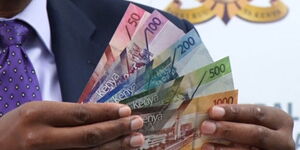Kenya Power has now revealed that its tariff categorisation is the key reason why the same amount of money buys you fewer electricity tokens than it used to before.
To charge for electricity tokens in the country, the electricity provider uses three tariff categories, which include Domestic Lifeline, Domestic Ordinary, and commercial and industrial tariffs.
According to Kenya Power, in a statement on Monday, April 28, the tariff categories are determined based on your average consumption of electricity over three consecutive months.
The lowest-priced tariff is the domestic lifeline, which is designed to cater to low-income households, who are referred to as 'lifeline customers'. These customers have a lower consumption level, and according to Kenya Power, they receive special and affordable rates.
For instance, if your monthly electricity consumption ranges below 30 tokens for three consecutive months, you qualify to be onboarded in this category. Customers in this category are usually Ksh15 per token.
"This tariff is designed to make electricity accessible for households with minimal power needs and enables more efficient management of electricity expenses," Kenya Power stated.
"If your monthly electricity consumption stays below 30 units per billing period (one calendar month) for an average of three months, you qualify for our lifeline tariff, which is just Ksh 15 per unit," it added.
The other category is Domestic Ordinary consumers. Customers under this category consume above 30 tokens of electricity monthly and are charged higher compared to the lifeline customers. For this category, KPLC charges approximately Ksh20.97 per token.
The last tariff category is the commercial and industrial tariff. Generally, customers under this category are charged higher rates per unit compared to the last two categories.
However, for this one, KPLC offers different electricity tariffs depending on their consumption, time of use, and voltage level of supply.
For instance, customers supplied with 33,000 volts of electricity pay approximately Ksh 12.66 per unit and Ksh 6.33 during off-peak hours, while those who use 66,000 volts pay approximately Ksh12.40 per unit, with Ksh 6.20 during off-peak hours.
However, electricity tariffs are reviewed and changed periodically due to factors such as electricity generation, transmission, and distribution; fuel prices; currency exchange rates; and government policies.












